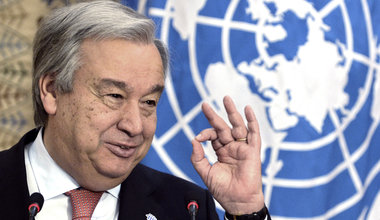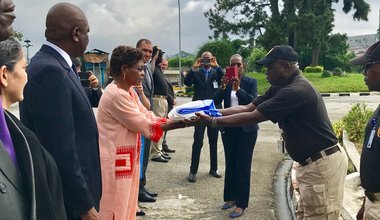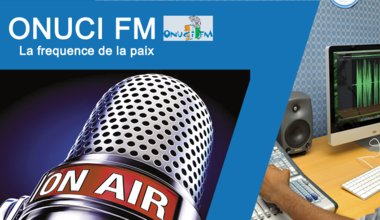Daily Brief on Côte d’Ivoire for Wednesday, 21 January 2009
Highlights
- UNOCI organizes civil society forum in Agboville
- Identification agents in Duekoue threaten strike action
Information and sensitization
UNOCI today organized a civil society forum in Agboville, situated 79 km north of Abidjan, to discuss the best ways of involving ordinary Ivorians in the peace process and to listen to their concerns. Public Information Officer, Kenneth Blackman, who led the Mission's delegation, told the gathering that in order to consolidate peace in Côte d'Ivoire, every level of Ivorian society has to be involved in the crisis-resolution process. He said that every Ivorian should ask each morning: "what am I going to do today to bring peace to my community". The forum, which was preceded by a medical camp organized by peacekeepers, during which people received free medicines and medical care, is the second event to be organized by the Mission in a town, which was once hostile to its presence in Côte d'Ivoire. A schools caravan for peace, involving thousands of local school children, was held there in May 2008.
Electoral process
Identification agents in Duekoué (west) are threatening to go on strike starting tomorrow over non payment of their salaries. They claim that instead of being paid for one month they were only paid for two days. Meanwhile their counterparts in different parts of the country continue their strike over the same issue leaving many identification centres closed; which has in turn led to frustration on the part of people who want to be identified.
Security
UNOCI Sector East Force Commander, General Zafar Iqbal, has called for coordinated effort to help combat the upsurge of criminality in the sector. He specifically called for closer collaboration between the Mission's peacekeepers and local security institutions such as the military, gendarmerie and police.
In Zéo, a village situated 12 km from Bangolo (west), four bandits armed with Kalashnikos attacked a Beninois couple in their home in the early hours of 20 January 2009, shooting the man in the knee and beating up his wife before escaping with 300,000 FCFA (approx $600) .
Arms Embargo
UNOCI peacekeepers yesterday carried out arms embargo inspections at the Defence and Security Forces of Cote d'Ivoire's (FDS-CI) gendarmerie brigade in Arrah, near Daoukro (east) and at the Armed Forces of the Forces Nouvelles' (FAFN) 11th battalion in Dabako, near Bouna (north)
Human Rights
The Human Rights Division is following up on a number of allegations of harassment of members of the Malinké community trying to take part in the identification process. It was reported that gendarmes from Ouélé, 30 km from Daoukro (east), had harassed, racketeered and threatened members of the Malinké trying to take part in the ongoing identification and voter registration process. A man from Boundiali (north), was allegedly detained for two days at Ouélé gendarmerie and threatened with imprisonment if he did not confess to being a Malian. All the papers proving his Ivoirian nationality were confiscated by the gendarmes. The victim was also forced to pay 150,000 FCFA (approx $300) for his release. The same gendarmes also reportedly demanded 50,000 FCFA (approx $100) from the man's wife, who was travelling on the Ananda - M'Bahiakro road, during a routine traffic control, before she was allowed to continue her journey. Her identity papers were also confiscated by them. In a third case, the gendarmes confiscated two sewing machines belonging to another Ivoirian whom they accused of being a Burkinabé pretending to be an Ivorian. As a result of these alleged abuses, members of the Malinké community in the area are now reluctant to take part in the identification operation.
The Regional Human Rights Office in Daloa (centre west), in collaboration with the local NGO "Cercle des Citoyens nouveaux de Daloa" (CCND), conducted on 16 January 2009, in Bonoufla, 25 km north of Daloa, an awareness-raising workshop on the right to vote. Some 120 people, including community, religious and traditional leaders attended the workshop which focused on the Ivoirian Electoral Code, the Code of Nationality and Article 21 of the Universal Declaration of Human Rights. The issue of legal recourse in case of electoral fraud was also highlighted.
 ONU
ONU Nations Unies Maintien de la paix
Nations Unies Maintien de la paix



